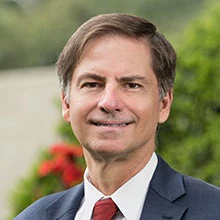 Mujer mirando paneles solares en Barrio 31, Argentina. Foto: Banco Mundial
Mujer mirando paneles solares en Barrio 31, Argentina. Foto: Banco Mundial
Latin America and the Caribbean is facing a significant challenge in 2023: how to promote sustainable, inclusive, and resilient growth that can be maintained over time in a complex context of both the war in Ukraine and the persistence of COVID-19 infections.
Initial measures in place in the region to support vulnerable households and businesses during the pandemic have been relatively successful but insufficient. After a rebound of 6.9 percent in 2021, the regional economy grew by 3.6 percent in 2022, and growth of 1.3 percent is expected in 2023.
Some proposals for activating growth are included in our Regional Economic Updates - October 2022, which indicates that, to consolidate the recovery, promote growth, and reduce poverty and inequality, countries in the region must continue investing in social programs and infrastructure.
However, making these investments in times of fiscal stringencies, such as the current one, poses challenges that are difficult to solve. But the necessary resources can be obtained by improving public spending efficiency. In fact, the report highlights that countries in the region could save up to 4 percent of their gross domestic product (GDP) by improving the efficiency of their public spending.
Recover education
That is the goal of the partnership we launched in 2022 with UNESCO, UNICEF, and the Inter-American Dialogue. The commitment to the recovery and protection of learning in Latin America and the Caribbean has the support of the presidents of Argentina, Chile, Ecuador, and Honduras and aims to put the educational recovery at the top of the public agenda; to recover learning and ensure the socioemotional well-being of children; and to value, support, and train teachers.
In 2023, we want to expand this call to all regional leaders so that countries prioritize the educational inclusion of all our children and young people.
Climate action, let us lead the change that we need
While you are reading this article, there are some countries in the south of the region facing extremely high temperatures and those further north enduring record-breaking cold. Climate change's consequences are keenly felt, and concern is growing. Almost every leader in the region with whom I have met over the past year has asked me how they can obtain green or climate finance to help reduce emissions.
The World Bank has doubled its climate finance. We have also published an ambitious Roadmap for Climate Action, which provides a regional vision of new and transformative opportunities to support countries in the transition to a low-carbon, inclusive, and resilient economy.
But that's not all. We have also developed new diagnostic reports called Country Climate and Development Reports (CCDRs) for Argentina and Peru, and we have several being developed. These reports identify both investment priorities and the climate finance gap in each country.
Two examples of this are Chile, which has already outlined a strategy that indicates that green hydrogen will help reduce greenhouse gas (GHG) emissions by 21 percent, and Costa Rica, which is spearheading efforts to reduce carbon emissions and has become the first country in the region to receive payments from the World Bank's Forest Carbon Partnership Facility.
When 2022 ended, we were left feeling that the worst of the pandemic-induced crisis was behind us. On the one hand, the region's economies have indeed recovered their pre-pandemic levels, children are back in school, and employment has returned to pre-crisis levels in most of the region.
However, a full recovery remains to be achieved in 2023, allowing us to reach the goal of moving towards fairer and more inclusive societies. I am confident that the future will be better and that we can work together to ensure that the region seizes the opportunity to rethink its development trajectory and implement innovative policies to create opportunities for all. I invite you to continue working together for a more sustainable, inclusive, and resilient region in this new year.


Join the Conversation